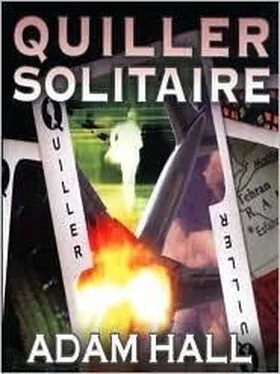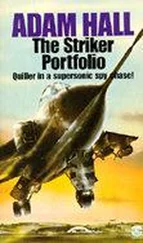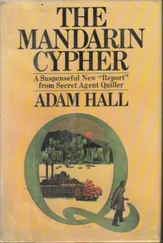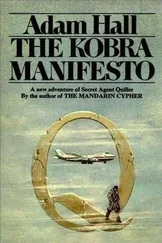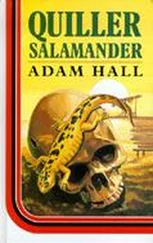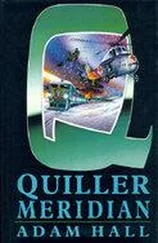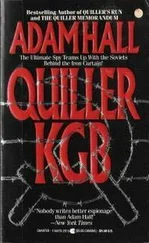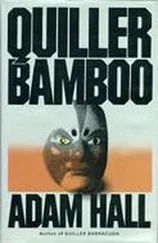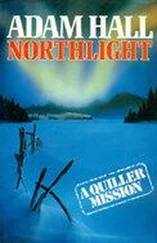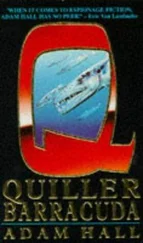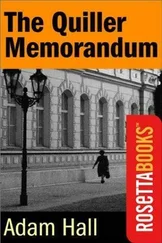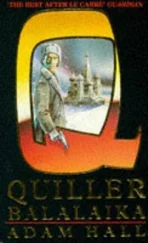'To meet friends,' I said. We were talking about the Safari Club in Tenerife, where I sometimes go between missions.
'You go there to meet friends,' Giovanni Scalfaro said, 'and you don't know what sorta girls they got there?'
Our heading was 28 degrees west of south, with the moon high above the domed Perspex cockpit cover and the Sahara below.
'The friends I meet there,' I said, 'aren't that sorta girls.'
We were an hour from the dropping point.
'Then what sorta girls are they?'
I've been given to understand that some Sicilians are like this.
But he was my friend, Giovanni Scalfaro. He could help me to save Solitaire , stop the headlines. If it wasn't too late.
I'd asked Cone about Pam Am Flight 907.
'It took off from Berlin at 6:17,' he'd said, 'and went off the screens twenty minutes later. The flight plan was New York via London. No radio contact since, still nothing on the screens. Pan Am have alerted their Emergency Procedures Information Centre and they're waiting for reports of wreckage.'
I didn't understand.
The object of this operation , Willi Hartman had told me in Berlin, is to place a bomb on board an international flight scheduled by one of the major US airlines.
Last night, when it had looked as if Nemesis had planned something bigger than a Lockerbie, I'd thought that Inge Stoph must have got it wrong when she'd told Willi about their plans. She smoked grass, and could have been high when she'd said that, wanted to shock him, Willi.
It didn't fit. The two Iranian pilots didn't fit into any plan for a Lockerbie operation. It signifies that they will die , the Arab at the palace had told me, before they sleep again . But it had been a Pan Am plane and they hadn't been flying it; we hadn't left Khatami behind in Berlin: he was here in Algeria. Nothing else fitted – Midnight One, the bearing, the zone somewhere in the Sahara – nothing.
It could be a coincidence.
I don't believe in them.
When I looked at the clock on the instrument panel again it read 22:00 hours – 10 p.m. I would be dropping in fifteen minutes.
It's 850 miles,' Cone had told me when he'd telephoned the hangar. 'The Aero L39 cruises at 454 mph at 16,400 feet.' The smoke had been rolling through the doorway, tinged with the glow from the fire. I'd thrown tarpaulins over Ibrahimi's body in case anyone came through there on a routine security check; then I'd holed up in an empty crate until the phone rang. 'He's using tip-tanks and reserves, so he can drop you over the zone and swing back and put down in Adrar to refuel. There's an airstrip there.'
We'd taken off at 8:16. Cone had been very fast, hotting up all the telephone wires in Algiers. The agent in place would have known the territory, where to find couriers, interpreters, weaponry, locksmiths, how to pull strings at the embassies, where to find transport, boats, planes, pilots, how to hire them, how much to pay.
Ten minutes ago, Giovanni Scalfaro had pointed downwards and to port. 'Adrar,' he'd said. There'd been a few lights, that was all. Now we were flying across darkness below, into the wastes of the Sahara. It would be like dropping, I thought, into mid-ocean.
'Did you hear,' I asked the Sicilian, 'about the Pan Am flight?'
He swung his head to look at me – 'Yes!' – and crossed himself.
'There's nothing been found yet?'
'Wait,' he said, 'I ask Rome,' and moved a hand to the radio.
Rome said there'd been some wreckage sighted in the North Sea, but it hadn't been identified. Pan Am Flight 907 hadn't come back on the screens, hadn't resumed radio contact.
'We will pray,' Scalfaro said. 'We will pray for them.'
You'll understand what I'm talking about , Maitland had said, tomorrow. We're going to make the headlines, you know.
If that wreckage were identified as belonging to Flight 907 there would be headlines, yes, tomorrow. But Klaus had talked about conventional explosives, had wanted a nuclear warhead. It couldn't have been anything to do with Flight 907.
At 10:05 Scalfaro looked at the INS reading. 'I'm gonna use partial flaps to bring the speed down to 120, okay? Gonna drop you off at 9,000 feet, okay with you?'
I said it was.
'We'll be over the drop zone in ten minutes. You better get all that stuff hooked on.'
I got the military knapsack and the water-bottles from behind the seat and buckled them to the chute harness. 'Will there be sand blowing down there?'
'Maybe some.' He looked through the dome. 'Maybe a little, sure. We didn't see too many lights back there in Adrar, but then it's a pretty small place, couple of thousand people. Could be some blowing sand, though.'
I got the goggles out of the knapsack and slung them round my neck.
At 10:12 Scalfaro looked down through the dome again. 'It's none of my business, but you know what you're doing?'
'Not necessarily.'
'Tell ya something, my friend, you're going to be lonely down there.'
I looked through the Perspex, saw nothing below, just a waste of darkness. 'What about wind currents,' I asked him, 'between here and the ground?'
'There shouldn't be any, this time of the year and at night. You won't be drifting much.'
10:14 on the clock.
The roar of the Titan turbofan was muted as Scalfaro brought the throttle back another notch. He had his head turned to watch me.
'You feel okay?'
He'd noticed me lurch a bit on the tarmac at Dar-el-Beida, wanted to know what the problem was, told him my shoes were pinching, none of his bloody business.
'Feel fine,' I said.
'Okay.' He slid the canopy back and the windrush slammed across our heads. ' Go for it!'
Drifting.
The sound of the plane had died away minutes ago, and there was just the whisper of the shrouds above me. The air was freezing against my face.
The starfields were brilliant in the dome of the night sky. Below me the darkness wasn't total: the moon was spreading its light across a vast ochre-coloured haze: the Sahara.
I felt isolated, minuscule.
Tell ya something, my friend, you're going to be lonely down there. And earlier Scalfaro had said when we'd boarded the plane, Maybe you're just crazy, I dunno. But I mean, where you're going, a hundred and sixty miles from Adrar, there's just desert. There's just sand, is all, the Sahara. I mean that's all you'll be too -just another grain of sand down there. I just hope you know what you're doing.
Perhaps. Perhaps not. It was all I'd got left of Solitaire , the fix, 26°03' north by 02°01' west, a point in the night, in the desert. And now I was there.
Drifting.
I looked at the glow of my watch-face again. I'd dropped six minutes ago, with a minute left before I hit ground. The ochre colour was lighter now, by a degree. Fine sand was pricking the left side of my face, and I put my goggles on and took a quick look above me. The moon's rim had lost its sharpness: there was sand blowing, close to ground level.
I looked down, waiting, as the desert rose against me in the final seconds of the drop and I sensed zero and pulled on the lines to break the impact and saw shapes in the distance through the blowing sand and felt hard ground under my boots.
It was fifteen minutes since I'd come down, and I had walked something like a mile across the violet-red clay surface in the moonlight, the fine sand blowing against my goggles and the scene ahead of me shifting as the wind came in gusts, so that the shapes out there took on substance and vanished again. Sometimes I could hear voices calling.
I'd tried to signal Cone on the radio but there was nothing but squelch. There was a power generator running somewhere, jamming the set.
I walked more slowly, trying to identify the shapes ahead of me, and heard another sound coming in now, a faint whistling. I stopped, trying to identify it, then without warning the generator was gunned up and the whole scene took on brilliance as a flarepath bloomed across the desert floor and lights flooded from the sky and I dropped into a crouch as the massive shape of an aircraft came drifting through the haze and settled onto the ground with a roar as it reversed thrust and I saw the blue and white Pan Am insignia on the tail.
Читать дальше
